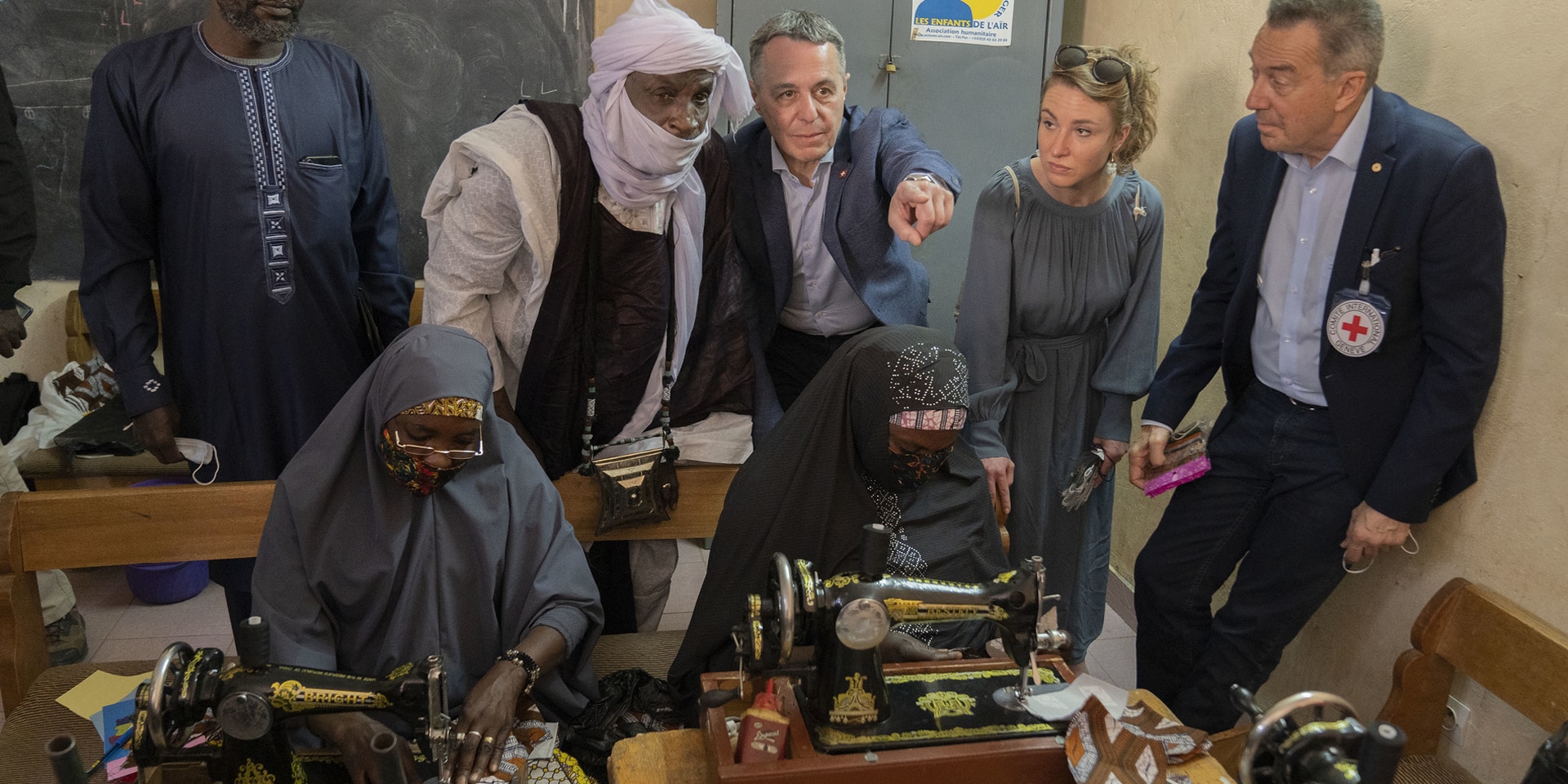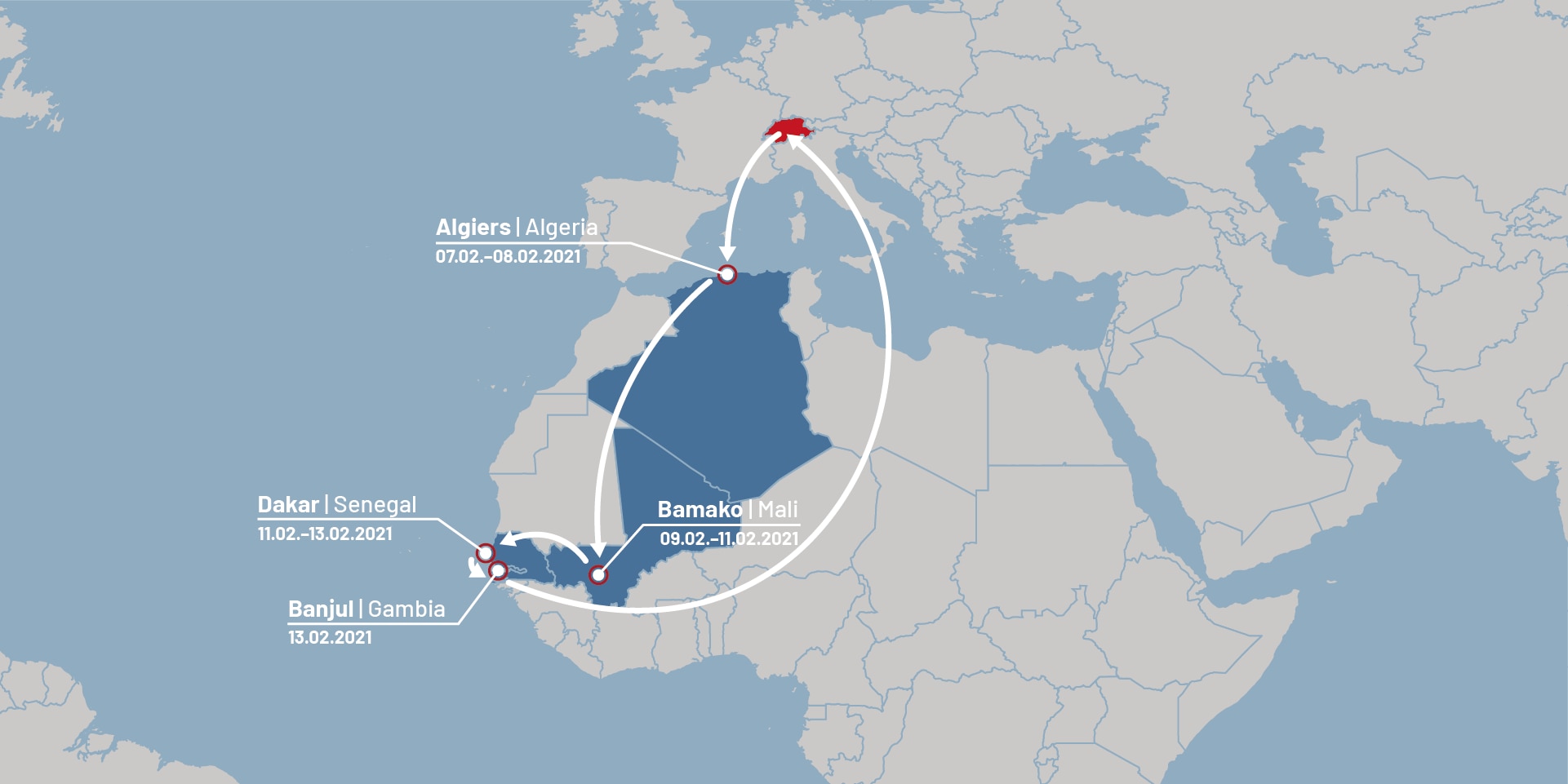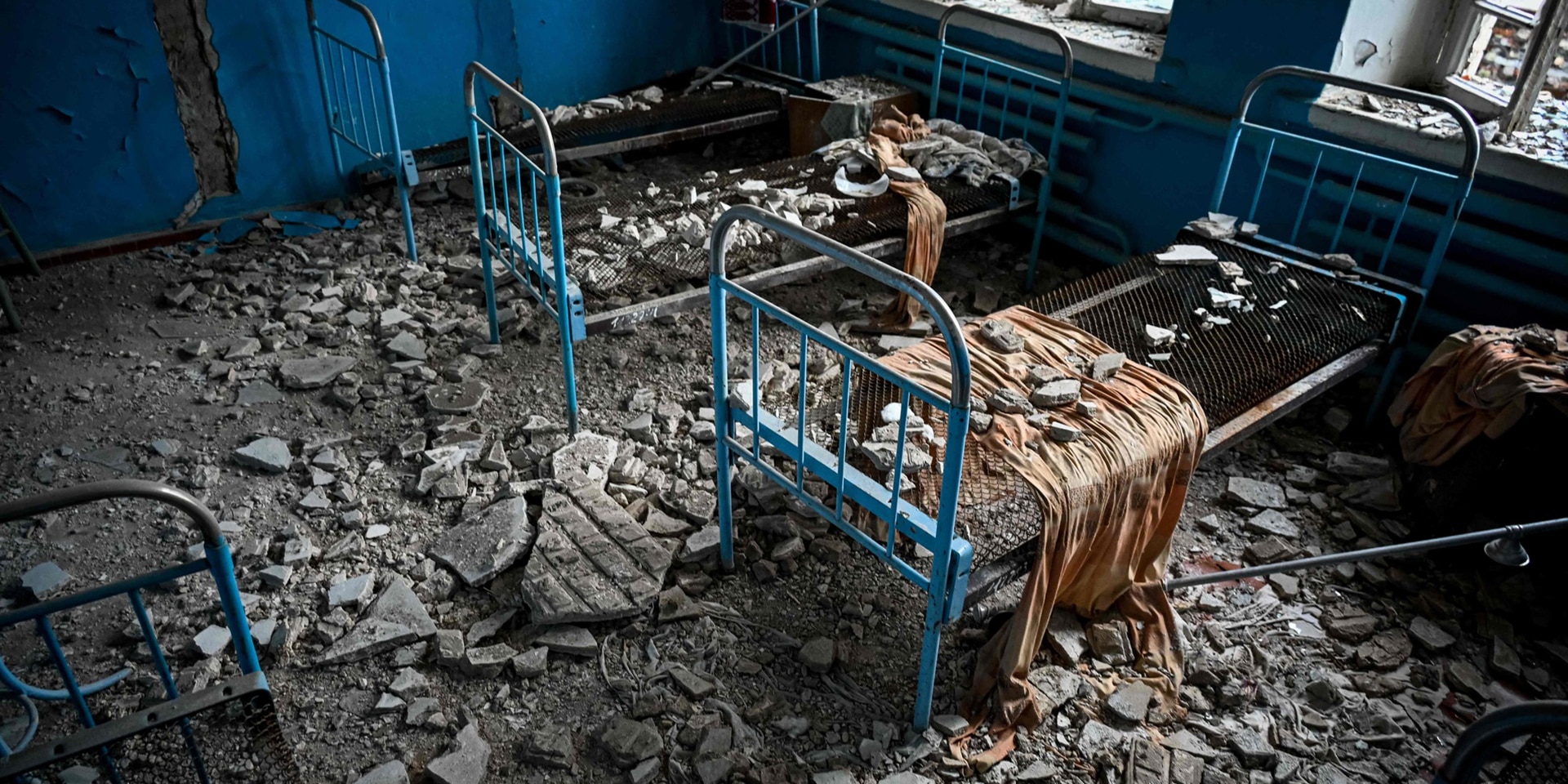National Peace Accords: Switzerland supports peaceful elections in Nigeria
The presidential and parliamentary elections held on 25 February and 18 March respectively were vitally important for Nigeria's future. But they also came at time when the country's economic and security situation was highly precarious. Prior to the elections, the presidential candidates therefore signed the National Peace Accords, in which they pledged not to use language likely to incite violence, to accept the officially declared election results and not to challenge the results through the courts. The FDFA assisted the parties in drawing up the agreement.
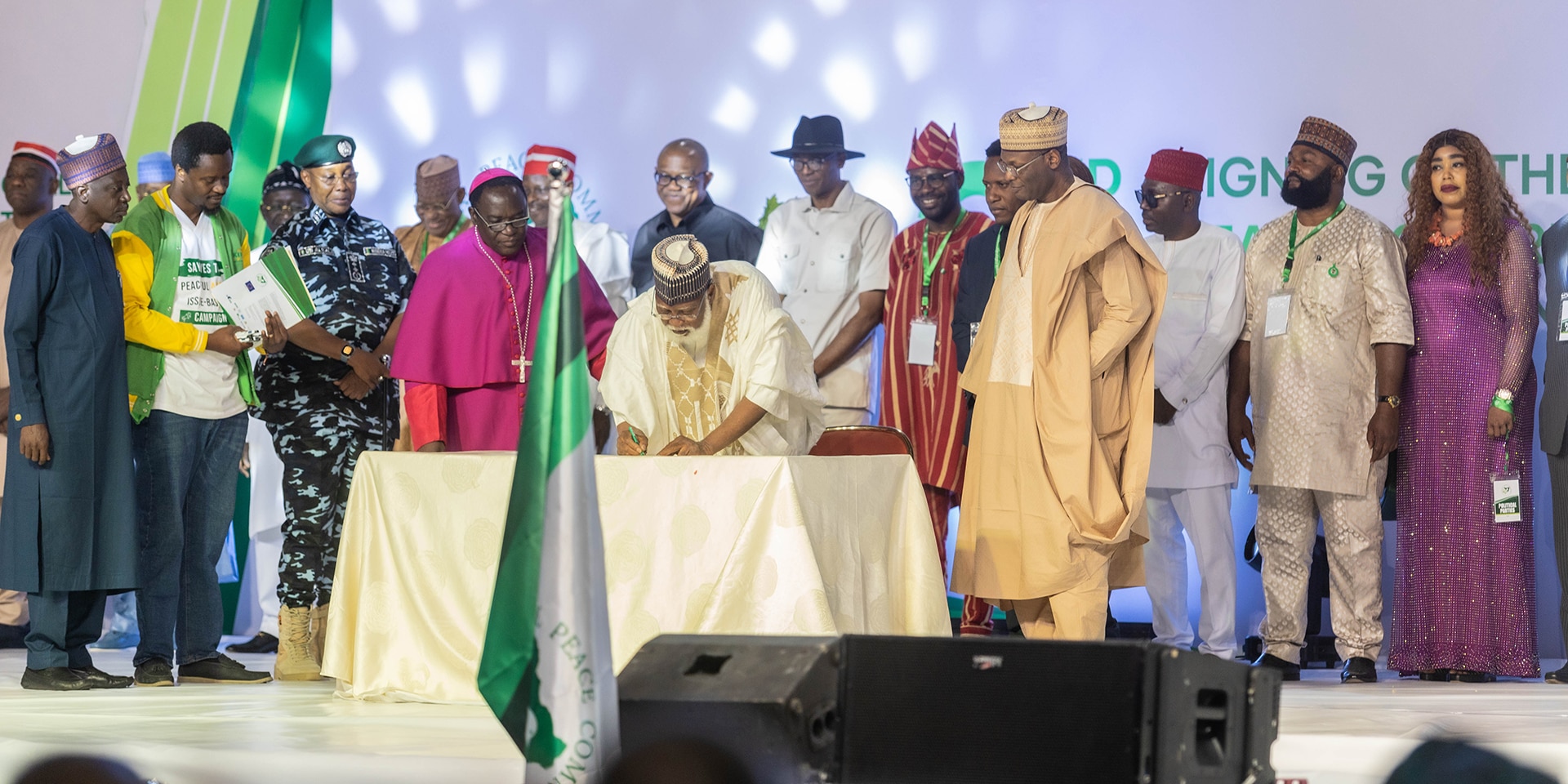
Am 22. Februar haben die Präsidentschaftskandidaten in Abuja die «National Peace Accords» unterschrieben. © FDFA
After eight years in office, the incumbent President Muhammadu Buhari is due to step down. Under Nigeria's Constitution, presidents can only serve a maximum of two four-year terms. As Nigerians prepared to elect a new president at the end of February there was still all to play for, with opinion polls indicating that Atiku Abubakar of the People's Democratic Party (PDPF) and the Labour Party's Peter Obi were in with a chance in
addition to Bola Ahmed Tinubu of the governing All Progressives Congress (APC) party, who eventually won the election. In fact, since Nigeria's transition to democratic rule in the 1990s, the Labour Party has gained a significant share of the votes at the ballot box, alongside the two established parties, the APC and the PDP. Many other parties have fielded candidates in all the presidential elections since the 1990s, but unlike the Labour Party, they had little chance of winning.
Multiple challenges
With 93.5 million registered to vote in Nigeria – Africa's largest voting population – elections pose a massive logistical challenge. The Independent National Electoral Commission (INEC) has had to deal with a number incidents, including physical attacks on the offices of local electoral authorities and claims of vote buying and selling. The precarious security situation in Nigeria also fuelled fears that violence would mar the elections.
Elections invariably function as a stress test for Nigeria's diverse society, where tensions between religious, ethnic and regional groups are high. With rumours, misinformation and disinformation spreading through social media, positions have become even more polarised. All this is compounded by Nigeria's serious economic problems.
Switzerland supporting measures to strengthen democracy
Given the situation, instruments that facilitate peaceful elections are all the more important. Nigeria's National Peace Committee (NPC) is an important stabilising force. It was set up, partly at Switzerland's suggestion, by former Nigerian statesmen and respected religious, business and civil society leaders, in response to emerging tensions in the run-up to the 2014 elections. Since its inception, the FDFA's Peace and Human Rights Division has supported the NPC in achieving its overriding objective, which is to strengthen democracy. Working with the Kofi Annan Foundation, it has played a key role in helping the NPC become one of Nigeria's most important and respected organisations working for peaceful elections.
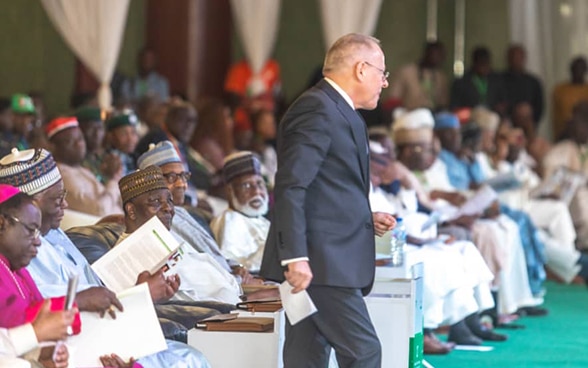
National Peace Accords
The National Peace Accords are the NPC's flagship initiative. The National Peace Accords are public undertakings by political parties and presidential candidates not to use inflammatory language likely to incite violence during election campaigns, to accept the election results and, in the event of a dispute, to resolve the issue peacefully through proper legal channels. The FDFA played a key role in setting up the National Peace Accords, which also extend to online communication, including a ban on propagating hate speech through social media. Switzerland's work also involved Nigerian political parties before the election campaign officially started, which helped manage and mitigate violence when the campaign was under way.
The National Peace Accords are now an integral part of the election process and widely accepted by the Nigerian people, with the ceremony broadcast on national television. In order to raise the visibility and credibility of the National Peace Accords, high-profile international figures have been invited to serve as witnesses since the first accord was signed in 2015. Since then, the National Peace Accords have had such a positive impact that Nigeria's 36 states have also adopted similar instruments. The National Peace Accords have now encouraged other countries to launch similar instruments in the run-up to their elections.
Switzerland was represented by its Ambassador to Nigeria, Nicolas Lang, at the National Peace Accords signing ceremony held on 22 February this year. Ambassador Lang was the only state representative to address the presidential candidates at the ceremony, apart from a representative from the EU, which supports the NPC alongside Switzerland. In his speech, he stressed the importance of shared values and principles for democracy and drew parallels between the federal systems in Switzerland and Nigeria.

